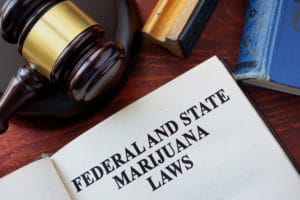Attorney General Jeff Sessions has announced a change in Department of Justice Policy
In 2016, California voters approved Proposition 64, also known as the Adult Use of Marijuana Act. Prop 64, which went into effect on November 9, 2016, would allow the sale of cannabis for recreational purposes beginning in January 2018.Under this law, adults aged 21 and older may posses up to one ounce of marijuana, and purchase up to one ounce per day. In addition, adults can cultivate up to six marijuana plants inside their homes. The sale of marijuana is heavily regulated under California law through the Bureau of Marijuana Control, and requires a license Smoking marijuana in public may lead to a $100 fine, and anyone who sells marijuana without a license can be sentenced to six months in county jail.
Prop 64 was certainly a watershed moment for Californians, both for those who want to engage in the sale of marijuana and for those who want to use the drug recreationally. It also offers an opportunity for anyone convicted of a crime involving marijuana in California, as an experienced Riverside drug defense attorney can explain. For some people, their convictions may be reduced or expunged based on the new marijuana laws.
However, shortly after the sale of marijuana for recreational purposes became legal, the federal Department of Justice (DOJ), through Attorney General Jeff Sessions, announced a new policy that may undercut the use of legal marijuana in California and elsewhere. Previously, the DOJ had taken a hands-off approach to the prosecution of marijuana offenses in states that had decriminalized the sale and possession of the drug, leaving regulation instead to the states. However, Attorney General Sessions has long been an opponent of marijuana, and has instructed the DOJ to strictly enforce federal laws on the sale, possession and use of marijuana. The two United States Attorneys for Southern California, the Central District based in Los Angeles and the Southern District based in San Diego, were each appointed by Sessions. It is unclear if they will decide to devote their resources towards prosecuting marijuana offenses, or if they will continue to follow the previous administration’s policy.
While most individuals will not likely be at risk of federal charges for simple possession of marijuana, according to Riverside drug defense attorneys, there is still the possibility of being charged with the crime if other laws are broken or if state laws regarding the use or possession of the drug are not followed. More significantly, businesses that sell cannabis may be targeted by the DOJ for prosecution; even though they are operating in compliance with state law, if they are violating federal law, prosecutors could charge them with a number of federal criminal charges. Anyone who owns a dispensary should consult with a Riverside drug defense attorney to seek legal advice about the potential risk of federal charges.
If you have been charged with a federal marijuana offense, you will need an experienced Riverside drug defense attorney to represent you. Contact the Chambers Law Firm today at 714-760-4088 or dchambers@clfca.com to schedule a free initial consultation and learn more about how we can help.





